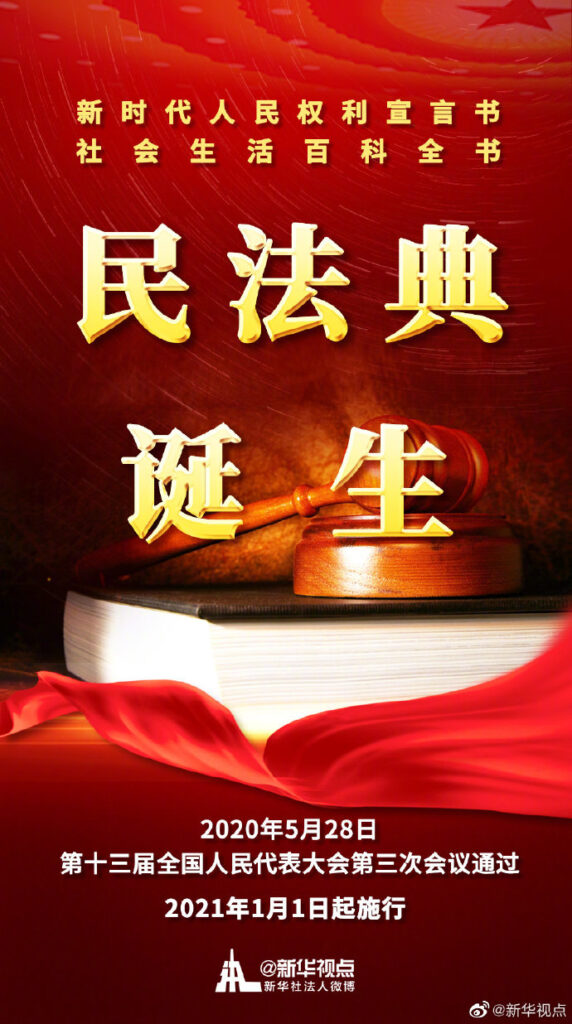The Third Session of the 13th National People’s Congress (NPC) voted and passed the “Civil Code of the People’s Republic of China” on May 28, 2020. This law will come into effect on January 1, 2021. Part III is dedicated to contracts, with a significant portion dedicated to technology transfer and development contracts. The relevant Articles in Part III deal with required provisions in technology agreements as well as duties and obligations of the parties to a technology agreement.
A short summary of some of the provisions follows, while full details can be found in the attached text of the China Civil Code(Chinese only).
Duties
Per Article 501 the trade secrets or other information that should be kept secret during the process of signing the contract shall not be disclosed or improperly used regardless of whether the contract is signed. Anyone who discloses or improperly uses the trade secret or information to cause losses to the other party shall be liable for compensation.
Per Article 855, the parties to a cooperative development contract shall make investments in accordance with the agreement, including investment in technology; division of labor to participate in research and development work; collaboration and cooperation in research and development work.
Contract Provisions
Article 845 provides suggested and required provisions for technology contracts, including technology development, transfer, licensing, consulting, etc.. Specifically, the contents of a technical contract generally include the name, content, scope and requirements of the project, the plan, location and method of performance, the confidentiality of technical information and other information, the attribution of technical achievements and the method of income distribution, and acceptance criteria and methods, terms and definitions of terms, etc.
The technical background information, feasibility demonstration and technical evaluation report, project mission and plan, technical standards, technical specifications, original design and process documents, and other technical documents related to the performance of the contract can be used as the body of the contract according to the agreement of the parties.
Where a technology contract involves a patent, the name of the invention, the patent applicant and patentee, the date of application, the application number, the patent number, and the validity period of the patent right shall be indicated.
Technology development agreements must be in written form form per Article 851. The article describes these agreements as a contract concluded between parties concerning the research and development of new technologies, new products, new processes, new varieties or new materials and their systems. Technology development contracts include commissioned development contracts and cooperative development contracts.
Similarly, technology transfer agreements and technology licensing agreements shall also be in written form per Article 863.
Breach of Contract/Termination
Articles 854 and 856 state that if a party to a commissioned development contract or a cooperated development contract cause stagnation, delays or failure of the research & development work, that party is liable for damages.
Article 857 allows termination if the technology that is the subject of a technology development contract has been made public by others, rendering the performance of the technology development contract meaningless.
Per Article 858 if a technology development contract fails due to technological difficulties, if there is no agreement or the agreement is not clear, the risks shall be shared by the parties reasonably. When one of the parties finds the situation that may lead to the failure or partial failure of the research and development, it shall promptly notify the other party and take appropriate measures to reduce the loss; if it fails to notify and take appropriate measures in a timely manner, resulting in the expansion of the loss, it shall bear responsibility.
Other
Article 600 provides that if an article protected by an Intellectual Property (IP) right is sold, the underlying IP right does not transfer with the product. Unfortunately, Article 600 is silent on implied license and how far downstream an implied license might apply, e.g., if the product is used downstream to manufacture a new product (e.g., chipset used in assembly of a mobile phone).
Article 850 declares invalid technology contracts that illegally monopolize technology, hinders technological progress, or infringes on the technological achievements.
